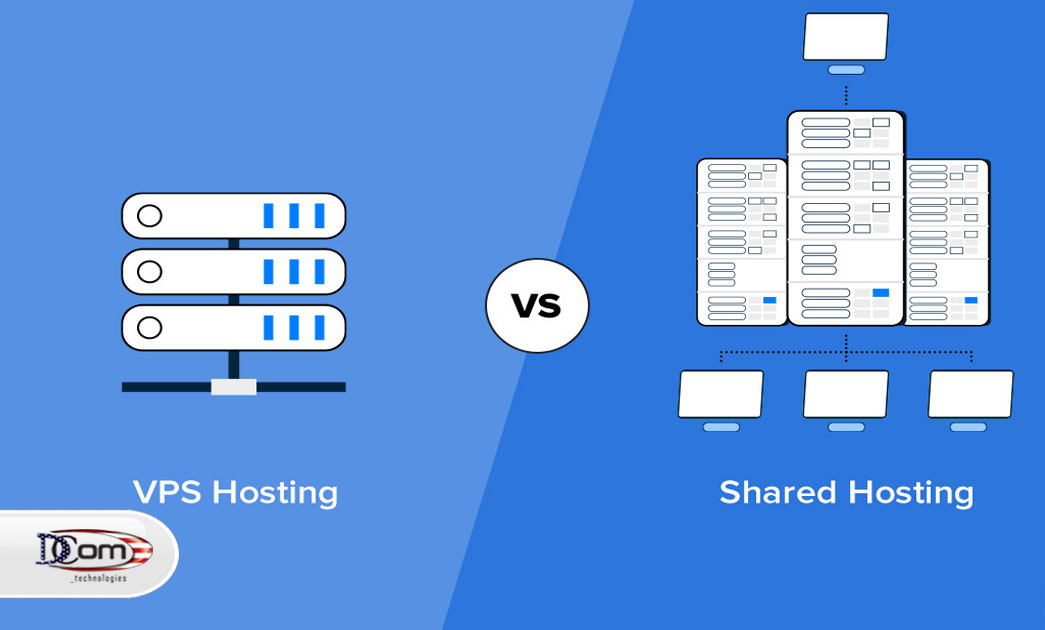Overview:
Shared Hosting: Shared hosting is a web hosting service where multiple websites reside on one web server connected to the Internet. Each site is “shared” with other sites on the same server, with each having its own Internet domain name and web files stored in its own directories. In other words, multiple websites are housed on one physical server and accessed on the Internet through one IP address.
VPS (Virtual Private Server): A VPS, or Virtual Private Server, is a virtual machine sold as a service by an Internet hosting service.
Which One Should You Choose?
Those who are just starting out or that are hosting a website with low traffic may be able to make do with shared hosting.
On the other hand, VPS (virtual private server) is ideal for those who need more control over their hosting environment, as it provides more customization options and dedicated system resources
Some Differences Between Shared Hosting and VPS:
1. Cost:
Shared hosting is usually much more affordable than VPS hosting.
2. Server Control and Security:
VPS hosting gives you the most control and security, as you have your own dedicated resources and root access.
3. Reliability:
VPS hosting offer more reliability than shared hosting.
4. Performance:
VPS hosting offer higher performance than shared hosting since you have your own dedicated resources, but shared hosting can also provide sufficient performance.
5. Scalability:
VPS hosting is more scalable than shared hosting, as you can increase or decrease resources as needed.
6. Technical Knowledge:
VPS hosting requires more technical knowledge than shared hosting, so it may not be suitable for those who are not comfortable with server-level configuration.
7. Customer Support:
Shared hosting usually offers 247 customer support from a specialized team, while VPS hosting may only offer limited customer support.
8. Setup Time:
VPS hosting requires more setup time than shared hosting.
9. Web Space:
Shared hosting offers more web space compared to VPS hosting.
10. Application Support:
Shared hosting offers more application support than VPS hosting.
11. Security Updates:
VPS hosting usually requires more frequent security updates then shared hosting.
12. Environment:
VPS hosting generally offers better environmental performance than shared hosting, as the amount of resources used for your website can be reduced.
13. Backup Schedules:
VPS hosting allows for more flexible backup schedules.
14. Customization:
VPS hosting offers more customization than shared hosting, as you can configure all of the server components.
15. Flexibility:
VPS hosting is more flexible than shared hosting, as you can choose the operating system and software that best suits your needs.
Conclusion:
In the end, the choice between shared hosting and VPS will depend on the host’s individual needs. Those with low levels of traffic may be able to make do with shared hosting, while VPS is the better choice for those needing more control and flexibility. It is important for those making a decision to carefully weigh the pros and cons of each option in order to make the most suitable choice.










